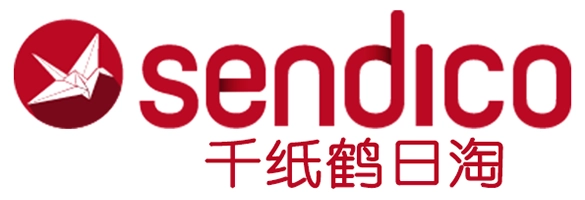The History of eBay in Japan and Alternatives for Overseas Customers
Are you trying to search for an item on "eBay Japan" and find nothing related to what you are looking for? The reason behind this is eBay has not been active in Japan since 2004, so we found eBay alternatives that offer a wide range of Japanese products with great deals.
As a Japan Shopping Proxy service provider, Sendico has extensive knowledge of Japanese e-commerce websites. We receive numerous products daily and ship them internationally to our overseas customers.
In this blog, we will share the best eBay alternatives in Japan for overseas customers. We hope you find the Japanese products you’re looking for. If you have trouble finding Japanese products, feel free to check out our Japan proxy service.
The History of eBay in Japan
eBay, the global online marketplace founded in 1995, quickly gained popularity in the United States and other parts of the world. However, its journey in Japan was not as smooth as in other markets. Despite being a significant player in the global e-commerce arena, eBay faced various challenges that led to a rocky history in Japan.
eBay's Early Years in Japan
eBay entered the Japanese market in 2000, a time when the e-commerce scene in Japan was still relatively new. The company aimed to replicate its success in the U.S. by offering Japanese consumers and sellers a platform to buy and sell a wide range of items. However, eBay's entry coincided with the rise of Yahoo! Japan Auctions, a local competitor that had already established a strong presence in the market.
Yahoo! Japan Auctions was familiar to the Japanese audience, and it quickly became the go-to platform for online auctions. eBay, on the other hand, struggled to gain traction due to several factors, including a lack of understanding of the local market, cultural differences, and competition from Yahoo! Japan. As a result, eBay's market share in Japan remained small, and the company faced difficulties in attracting users.
Withdrawal from Japan
By 2002, just two years after its launch, eBay made the difficult decision to withdraw from the Japanese market. The company cited its inability to compete with Yahoo! Japan as the primary reason for its exit. This withdrawal marked a significant setback for eBay's global expansion strategy, but it also highlighted the challenges of entering a market with strong local competitors.
Return and Collaboration with Yahoo! Japan
After its initial failure, eBay stayed out of the Japanese market for several years. However, in 2007, the company announced a strategic partnership with Yahoo! Japan. This collaboration allowed Japanese consumers to access eBay's global marketplace through Yahoo! Japan Auctions. The partnership aimed to leverage Yahoo! Japan's strong local presence while giving eBay access to a broader audience.
Through this partnership, Japanese sellers could list items on eBay's global platform, and Japanese buyers could purchase items from international sellers. This move allowed eBay to re-enter the Japanese market without directly competing with Yahoo! Japan, thus avoiding the challenges that led to its earlier withdrawal.
Current Status of eBay in Japan
While eBay never fully regained a dominant position in Japan, the partnership with Yahoo! Japan allowed it to maintain a presence in the market. Today, Japanese consumers can still access eBay's global marketplace, but the platform remains less popular compared to local options like Yahoo! Japan Auctions, Rakuten, and Mercari.
eBay's experience in Japan serves as a reminder of the importance of understanding local markets and adapting strategies to meet the unique needs of consumers. Although it faced significant challenges, eBay's collaboration with Yahoo! Japan provided a way to stay connected with Japanese buyers and sellers.
Top eBay Alternatives in Japan
For those looking for alternatives to eBay in Japan, several platforms offer reliable options for buying and selling goods:
Yahoo! Japan Auctions: Yahoo! Japan Auctions is the leading online auction platform in Japan, offering a wide range of products, from electronics to fashion. It is particularly popular among Japanese users due to its user-friendly interface and extensive selection.
Mercari: Mercari is a popular mobile app that allows users to buy and sell secondhand items. Known for its ease of use, Mercari has become a favorite among younger generations in Japan. The app offers a wide variety of items, including clothing, electronics, and home goods.
Rakuten: Rakuten is one of Japan's largest e-commerce platforms, offering everything from electronics to fashion. While not primarily an auction site, Rakuten provides a marketplace for both new and used goods, making it a popular choice for online shoppers in Japan.
Suruga-ya: Suruga-ya specializes in collectibles, including anime merchandise, trading cards, and vintage toys. It's a great alternative for those interested in niche markets, offering a wide selection of rare and hard-to-find items.
Fril (Rakuma): Fril, now known as Rakuma, is another popular mobile marketplace in Japan, similar to Mercari. It offers a platform for users to buy and sell secondhand goods, with a focus on fashion and accessories.
Read More about - How to Buy From Rakuten Rakuma (Fril)
Each of these platforms provides unique features and benefits, catering to different segments of the Japanese market. Whether you're looking for everyday items or rare collectibles, these eBay alternatives offer a variety of options for online shopping in Japan.





